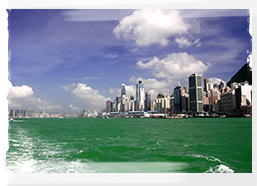-
Elephants Can't Jump
Ensuring brand initiatives work in practice as well as in theory. To have marketplace impact, we believe every research assignment should consist of three elements � consumer exploration or validation, within a competitive context, generating commercial outputs.
View full entry

-
Firefish Ltd
29 full time staff, operating in all corners of the globe, on all manner of projects. No methodology is squashed to fit. We approach each brief with fresh eyes and minds, to make sure you get the most out of your research, helping your brand move forward.
View full entry

-
Grass Roots
Grass Roots is one of Europe's largest performance improvement companies. Established in 1980, Grass Roots UK is the founding company of a group with offices and partners operating in 15 countries around the world.
View full entry

-
DIGITAL-MR
In addition to Social Media Research (Web Listening) DigitalMR�s solutions also include community panels, access panels, Web usability and a distinct focus on qualitativeresearch online.
View full entry

An Introduction to Hong Kong
The Hong Kong Special Administrative Region (SAR) of China, as it's now officially known, comprises Hong Kong Island, Kow'oon and the New Territories, and about 235 outlying islands. Occupied by the British in 1841, the territory was handed to China in 1997, 13 years after a joint (Anglo-Chinese) Declaration which stipulated that its capitalist system and way of life would remain unchanged for 50 years. Its foreign affairs and defence are the responsibility of the Chinese Government. See full country profile.Latest Research News from Hong Kong
1 current Hong Kong job:

GOVERNMENT: Limited democracy
AREA: 1,092 sq km
POPULATION: 7,089,705 (July 2010 est.)
MAJOR LANGUAGE: Chinese (Cantonese), Chinese dialects, English

Some business and general info
The Market Research Industry
Trade and Industry in Hong Kong
The Hong Kong Special Administrative Region (SAR) of China, as it's now officially known, comprises Hong Kong Island, Kow'oon and the New Territories, and about 235 outlying islands. Occupied by the British in 1841, the territory was handed to China in 1997, 13 years after a joint (Anglo-Chinese) Declaration which stipulated that its capitalist system and way of life would remain unchanged for 50 years. Its foreign affairs and defence are the responsibility of the Chinese Government.
One of the 'four Asian tigers' of the late twentieth century, services make up 85-90% of its mature economy. At present, growth is driven mostly by tourism and trade.
GDP: US$301,3bn (-3% on 2008) - per capita US$42,700 (2009 est.)
Religions 99% Chinese, 1% other; Buddhism and Taoism (majority)
Currency: HK Dollar, pegged to the US Dollar at HK$7.8 = US$1
Telephone Code: +852
MR Association(s):
Hong Kong Institute of Marketing.
The territory's MR industry has grown almost 40% in five years (2008 ESOMAR figure was $97m) - slower than most of the fast-developing nations in the region but still very rapid for a relatively well-developed economy. MR spend as a percentage of ad spend is very low at 1.5%.
Source: ESOMAR
Hong Kong is one of the world's leading trading and financial centres, the eleventh largest trader in the world, the largest source of foreign direct investment amongst Asian economies and the largest external investor in every mainland province of China. Its highly capitalist economy has been ranked as the most free economy in the world in the Index of Economic Freedom for 14 consecutive years, and it boasts the greatest concentration of corporate headquarters in the Asia-Pacific region. The Hong Kong Stock Exchange is the sixth largest in the world, with a market capitalisation of US$2.97 trillion as of October 2007, and the second highest value of initial public offerings, after London. Hong Kong's GDP per capita grew in real terms at an annual rate of 6.5% from 1965 to 1989, such that by 1990 Hong Kong's per capita income had officially surpassed that of the ruling United Kingdom.
Email me:
laurence@mrweb.com

With its distinctive blend of East meets West Hong Kong provides easy access to different cultures and nationalities, which for Radar Global is key. Complemented by a low tax environment and supportive government policies to stimulate and protect new businesses make it relatively easy and attractive to establish a company.
Although highly competitive, with a good and innovative business concept there are still plenty of niche opportunities across different industries to claim, develop and capitalize on.
Its sophisticated infrastructure, several innovative policies focusing on the development of IT, a hardworking, adaptable and well-educated workforce plus an entrepreneurial flair make Hong Kong's service industry a force to be reckoned with in the Asia Pacific Region.
Apart from being a great city to jumpstart your career or to establish your own company, Hong Kong is the epitome of work hard play hard. Although it's fast moving city, with beautiful beaches, great hiking, happening nightlife and top notch restaurants, it's a city where you can find your own pace.
Numbers of unemployed are now back down to where they were at the end of 2008. Consumer spending fell off a cliff before rebounding very strongly to where it is now with many discretionary purchases simply being delayed.you just can't stop Hong Kong shoppers.
The economy is also boosted by the large numbers of tourists from the Mainland and other buoyant Asian economies. What they see when they get here has changed too'- the ICC (International Commerce Centre) topped out in 2010 at 118 floors and the striking Stonecutters Bridge was opened to traffic at the end of 2009.
The pace of change is not letting up. Massive infrastructure projects (such as the 50 km series of bridges/tunnels which will link Hong Kong, Zhuhai and Macau) have been started in the last two years. The development of the Pearl River Delta (a 12 year plan) is likely to see Hong Kong cement its unique role in the transfer of ideas, capital and business between China and its global trading partners.
In the face of all this change you can, after a hard day at work driving the global economy, sit on a creaking plastic chair under a slimy tarpaulin and indulge in what the nearest open air food stall (dai pai dong) has to offer (recommended for offal fans). These shabby stalls and the surrounding glass and steel towers exemplify the contrasts which, in our humble view, are central to Hong Kong's identity. Constant change and contrast - it's a researcher's dream.
